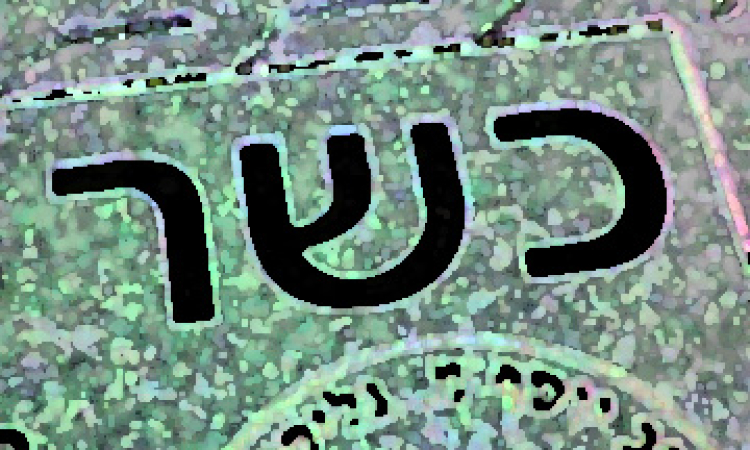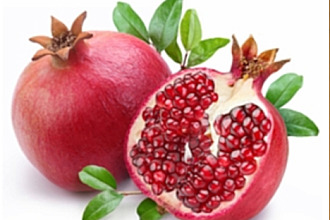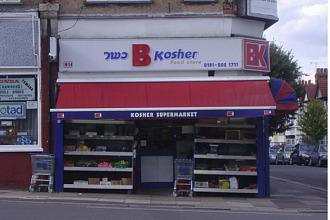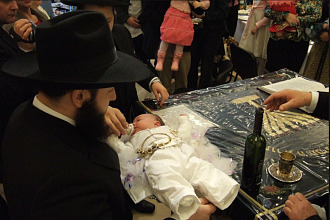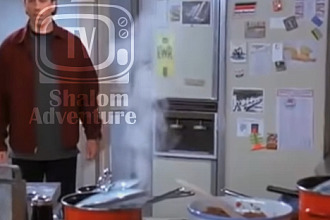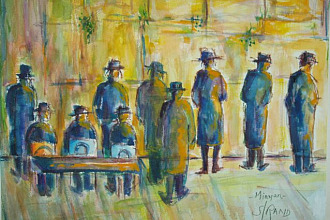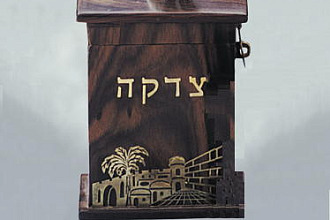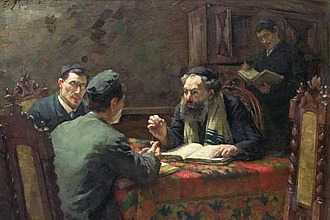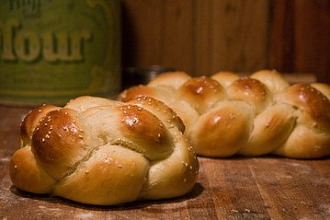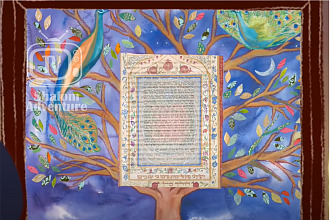The word “kosher” literally means “proper.” When kosher is used to describe food it refers to those foods that are proper to eat. The Bible outlines biblically kosher foods. Biblically kosher foods are described in Leviticus chapter 11.
Since the removal of all blood is one of the biblical requirements for eating animals (Lev. 3:17) there is a special procedure for slaughtering animals to ensure the draining of as much blood as possible. A kosher slaughterer is called a “Shohet.” They are highly trained religious individuals. The Shohet uses a razor sharp knife known as a “chalef” that kills the animal painlessly, with a single cut along the throat severing the trachea, the esophagus, the jugular vein, and the carotid arteries.
Modern Judaism has extra restrictions that are not mentioned in the Bible. These have been added over the years. These might be termed rabbinically kosher laws or kashrut. Rabbinically kosher laws include those listed in the Scriptures but add restrictions such as not eating dairy and meat products at the same time. These extra rules have been added because of the way the rabbis have interpreted the text that says, “You shall not boil a kid in its mother’s milk.” Exodus 23:19. This text has been interpreted to mean that milk and meat products cannot be eaten together. More than just not eaten together, according to rabbinical Judaism, they are not even allowed in the same refrigerator, in the same restaurant, or eaten on the same plates or with the same utensils, even after those plates or utensils have been washed. Rabbinically kosher homes often have two refrigerators, two sets of dishes and utensils (sometimes more if they have special dishes and utensils for Passover), two sets of sponges and dishtowels, even two sinks and two dishwashers. If a restaurant wants to be a kosher restaurant it has to be either a dairy restaurant or a meat restaurant. It cannot sell both dairy and meat.
An entire industry has been created by the interpretation of this text. As a result of this interpretation there are dozens of kosher certification organizations that certify food products and restaurants as being kosher or not. The symbols on food products such as a “K” or a “U” in a circle or a “K” in a star, etc. are the symbols indicating which one of the various kosher certification organizations certified that product.
You may have wondered why those symbols would appear on boxes of raisins, cans of pineapple, containers of oatmeal, bags of frozen string beans, and other obviously biblically clean or kosher foods.
The reason is because the certification is not only an indication that the food itself meets the biblical requirements, but that the packaging plant also meets the rabbinically kosher requirements of not packing both dairy and meat products or unclean foods from the same facility. The certifying agency also makes sure that all of the ingredients in a product meet kosher standards of not mixing meat and dairy, or containing pork, etc. as well as ensuring that only kosher ingredients are in all the other products made there as well. This requires research into all of the ingredients and all the plants where the ingredients are manufactured and packaged. The rabbinic inspector is called a mashgiach. In the U.S.A. the kosher industry is a multi-billion dollar business annually.
As we again look at Exodus 23:19 which says, “You shall not boil a kid in its mother’s milk,” we notice it does not say anything about not eating meat and dairy together. It does not say anything about a need for separate restaurants, sinks, dishes, utensils, refrigerators, etc. It only says don’t boil the kid in its mother’s milk. Leviticus 22:28 shares a similar injunction. It says, “No animal . . . shall be slaughtered on the same day with its young.” No multi-billion dollar industry has been created by this text. No unnecessary burdens have been placed on individuals and households by this text. Adonai said what He meant. If He wanted to tell us not to eat meat and dairy together He would have said so.
As a matter of biblical fact, when the Lord and two angels visited Abraham in the form of three men Abraham served them a meat and dairy meal of curds, milk, and a calf and the Bible says they ate it (See Genesis 18:8).
The Bible clearly tells us what we should do and should not do and we do not need to be adding man-made rules to the Word of God. Kosher certifying agencies have helped produce a healthier product by requiring that meat processing plants perform to a higher standard of cleanliness. And while there is nothing wrong with following the full rabbinical kosher requirements for food it is not necessary to do so in order to fulfill the Scriptural requirements.
It is very important to be able to distinguish between biblical commands from God and man-made rules. We should never confuse the commandments of God with the traditions of men.
Originally from: Jewish Discoveries by Jeff Zaremsky, pages 119-121, which contains a total of 22 fascinating chapters of biblical history and lessons plus 25 rich Jewish tradition sections, and 27 powerful testimonies, with over 40 beautifully rendered professional works of art all on over 300 jam packed pages. You can own this treasure by visiting www.Jewishheritage.net

